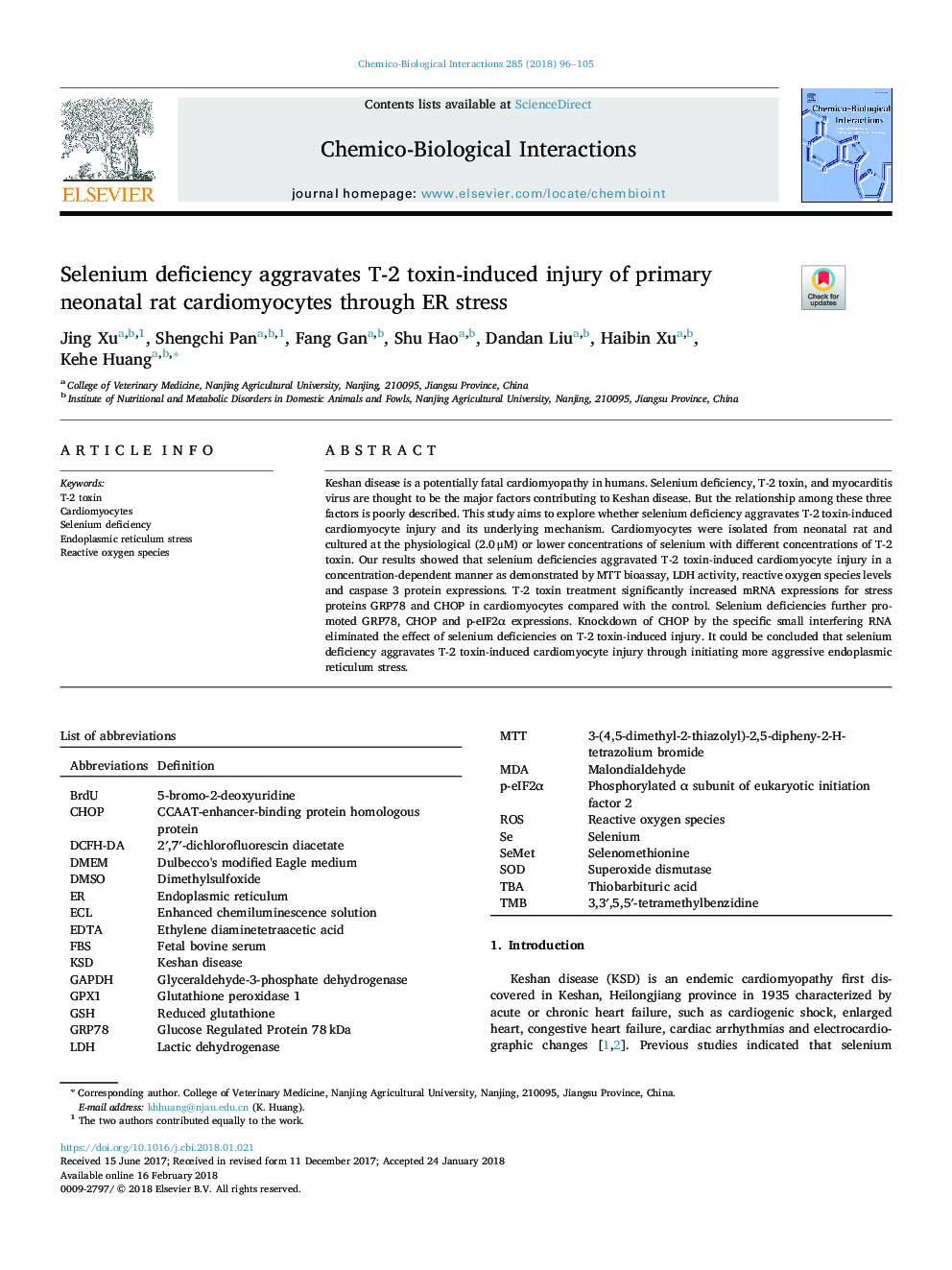| کد مقاله | کد نشریه | سال انتشار | مقاله انگلیسی | نسخه تمام متن |
|---|---|---|---|---|
| 8544878 | 1561557 | 2018 | 10 صفحه PDF | دانلود رایگان |
عنوان انگلیسی مقاله ISI
Selenium deficiency aggravates T-2 toxin-induced injury of primary neonatal rat cardiomyocytes through ER stress
دانلود مقاله + سفارش ترجمه
دانلود مقاله ISI انگلیسی
رایگان برای ایرانیان
کلمات کلیدی
موضوعات مرتبط
علوم زیستی و بیوفناوری
علوم محیط زیست
بهداشت، سم شناسی و جهش زایی
پیش نمایش صفحه اول مقاله

چکیده انگلیسی
Keshan disease is a potentially fatal cardiomyopathy in humans. Selenium deficiency, T-2 toxin, and myocarditis virus are thought to be the major factors contributing to Keshan disease. But the relationship among these three factors is poorly described. This study aims to explore whether selenium deficiency aggravates T-2 toxin-induced cardiomyocyte injury and its underlying mechanism. Cardiomyocytes were isolated from neonatal rat and cultured at the physiological (2.0â¯Î¼M) or lower concentrations of selenium with different concentrations of T-2 toxin. Our results showed that selenium deficiencies aggravated T-2 toxin-induced cardiomyocyte injury in a concentration-dependent manner as demonstrated by MTT bioassay, LDH activity, reactive oxygen species levels and caspase 3 protein expressions. T-2 toxin treatment significantly increased mRNA expressions for stress proteins GRP78 and CHOP in cardiomyocytes compared with the control. Selenium deficiencies further promoted GRP78, CHOP and p-eIF2α expressions. Knockdown of CHOP by the specific small interfering RNA eliminated the effect of selenium deficiencies on T-2 toxin-induced injury. It could be concluded that selenium deficiency aggravates T-2 toxin-induced cardiomyocyte injury through initiating more aggressive endoplasmic reticulum stress.
ناشر
Database: Elsevier - ScienceDirect (ساینس دایرکت)
Journal: Chemico-Biological Interactions - Volume 285, 1 April 2018, Pages 96-105
Journal: Chemico-Biological Interactions - Volume 285, 1 April 2018, Pages 96-105
نویسندگان
Jing Xu, Shengchi Pan, Fang Gan, Shu Hao, Dandan Liu, Haibin Xu, Kehe Huang,